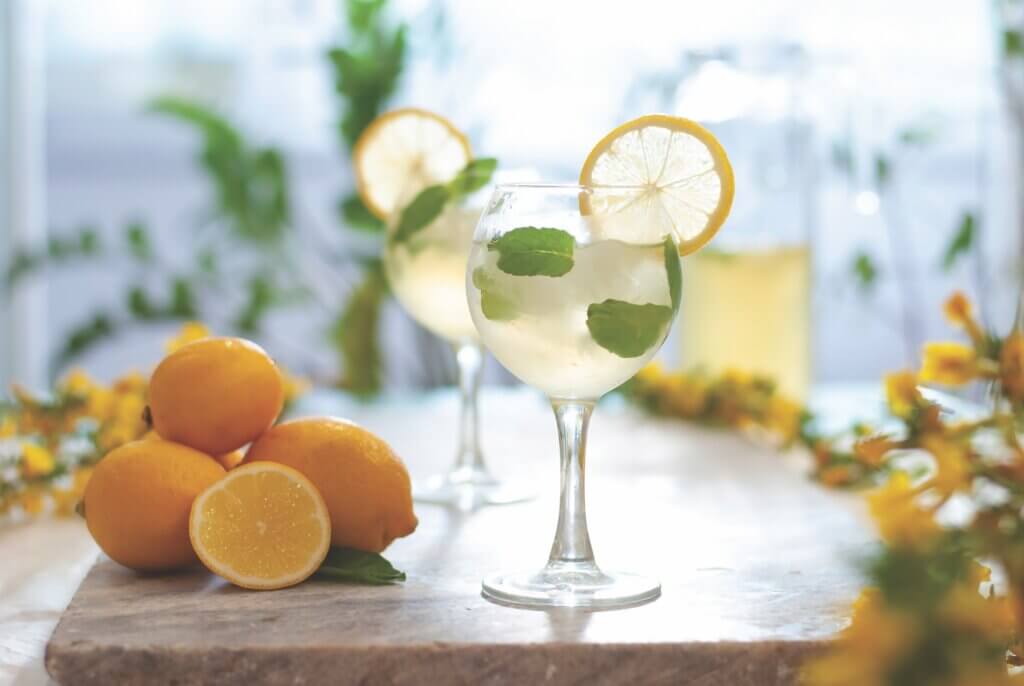Diet & Nutrition
Sober Curious?
Discover why more people are embracing sobriety for its short- and long-term health benefits.
If you’re planning to start the new year by forgoing alcohol, you’re not alone. Over the last decade, Dry January has become a cultural and social media phenomenon as many people embrace a sober start to the year. For some, it’s a way to recover after the excess of the holiday season. For others, being sober curious is a test run into the health benefits of sobriety.
“There is growing awareness that alcohol consumption is not beneficial for health,” said Dr. Patric Knecht, a family medicine physician at Aspen Valley Primary Care with a specialty in addiction medicine.
“Cutting back by any amount can reduce risks and lead to improvements in heart, liver, intestinal, bone and brain health. And when people try sobriety, they almost always feel better and function at a higher level cognitively, athletically and sexually, so they get the positive feedback that is so important for implementing lasting change.”
 Physical Health Benefits
Physical Health Benefits
Drinking less or not at all comes with a variety of physical benefits. These include:
Improved organ function
Put simply, alcohol consumption stresses your organs. Consider your liver: When not dealing with alcohol, your liver is better able to process blood and aid in digestion.
Better quality sleep
While alcohol may cause drowsiness, it often disrupts sleep, leaving you feeling tired. Better sleep means more energy to meet your responsibilities and do the things you love.
Higher immune function
Alcohol taxes your immune system, making you more susceptible to illness and infection. Sobriety helps regulate hormone and immune function so you feel your best.
Enhanced stamina
Sobriety lets your body absorb more nutrients, maintain a higher metabolism and improve your stamina—making it easier to pursue your health and fitness goals.
Protection from chronic diseases
Alcohol use may increase risk of certain cancers as well as cardiovascular disease and its symptoms, including heart attack, atrial fibrillation and stroke. Cutting back is one way to protect your health.
“Cutting back by any amount can reduce risks and lead to improvements in heart, liver, intestinal, bone and brain health.”
PATRICK KNECHT, MD, FAMILY MEDICINE PHYSICIAN AT ASPEN VALLEY PRIMARY CARE
 Mental and Emotional Health Benefits
Mental and Emotional Health Benefits
People who consume less alcohol are likely to experience fewer mood-related conditions, such as depression or anxiety. Other benefits include:
Improved mental clarity
Sobriety enhances focus, memory and cognitive function, enabling you to think more clearly and make better decisions.
Greater emotional resilience
Staying sober makes it easier to manage the emotions of daily life, reduce stress and lift your mood.
Stronger relationships
While drinking loosens inhibitions, it may lead you to say or do things you don’t mean. Sobriety offers an opportunity to rebuild trust and establish healthy, supportive friendships.
“Sobriety has positive benefits for physical and mental health,” said Kate Moyer, LCSW, Behavioral Health Clinician at Aspen Valley Primary Care. She added that while many people consume alcohol to cope with stress and anxiety, “Drinking can exacerbate pre-existing mental health conditions, including anxiety and depression, so sobriety can contribute to greater overall wellbeing.”
 Taking the First Step
Taking the First Step
If you want to reduce or eliminate alcohol, start by looking at how much you drink now. “The higher the volume or frequency,” Dr. Knecht explained, “the harder it is to quit or cut back.”
If your alcohol consumption is low, then you probably won’t feel much different once you stop. But, Dr. Knecht noted some people with physiological dependence on alcohol can experience withdrawal, with symptoms including anxiety, tremors, sweating, appetite loss and high heart rates.
“Most cases of alcohol withdrawal are mild and do not require monitoring. If you are worried or have experienced moderate to severe withdrawal in the past, then discuss a cessation plan with your doctor prior to making significant changes. It’s OK to cut back very slowly if you are able.”
Removing alcohol, whether it’s for Dry January or for the foreseeable future, doesn’t have to feel like a sacrifice. Instead, it can be the start of something refreshing and empowering for your health and happiness.
“Set reasonable goals and find people who can support you. Our brains love accomplishing goals because doing so feels good,” Dr. Knecht added.
If you do enjoy having a drink with a meal or friends —relax. It’s OK and can be incorporated into a healthy lifestyle. Check with your doctor anytime for guidance.
“It’s important to recognize the path to wellness looks different for everyone,” said Moyer. “For those who don’t want to completely cut out alcohol, reducing consumption is the next best step.”
 Mocktails: A Tempting Alternative
Mocktails: A Tempting Alternative
If you’re going sober, even for a short time, you’ll find plenty of non-alcoholic choices. Creative mocktails, tonic waters and alcohol- free spirits are more popular than ever.

Fewer calories
Alcohol is high in calories: a five-ounce glass of wine has about 120 calories, and sugary cocktails like strawberry daiquiris may reach more than 250. Many zero-proof drinks have far fewer, which supports maintaining a healthy weight.
Healthier ingredients
Non-alcoholic drinks made from herbs, fruit, vegetables and sparkling water don’t strain the body. They may even be good for you! Low-sugar recipes are best for overall health.
Hydrating vs. dehydrating
Alcohol is a diuretic, which means it causes your body to remove fluids. If you don’t drink enough water, you can become dehydrated from drinking alcohol. Alcohol-free drinks can help you stay hydrated—which is especially important at altitude.


